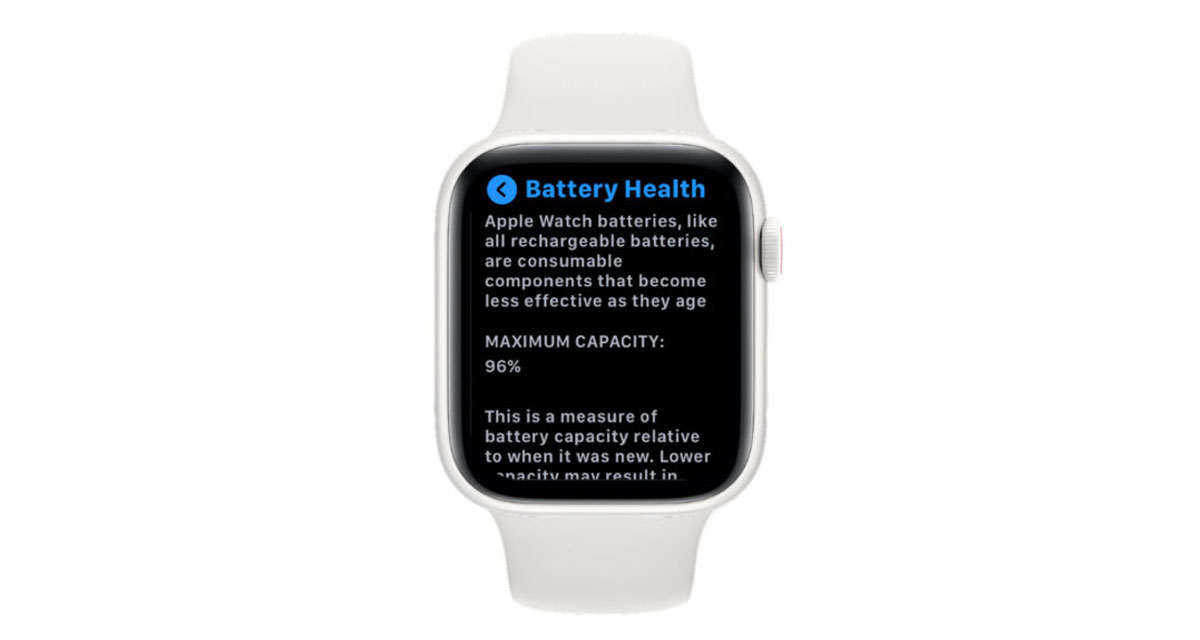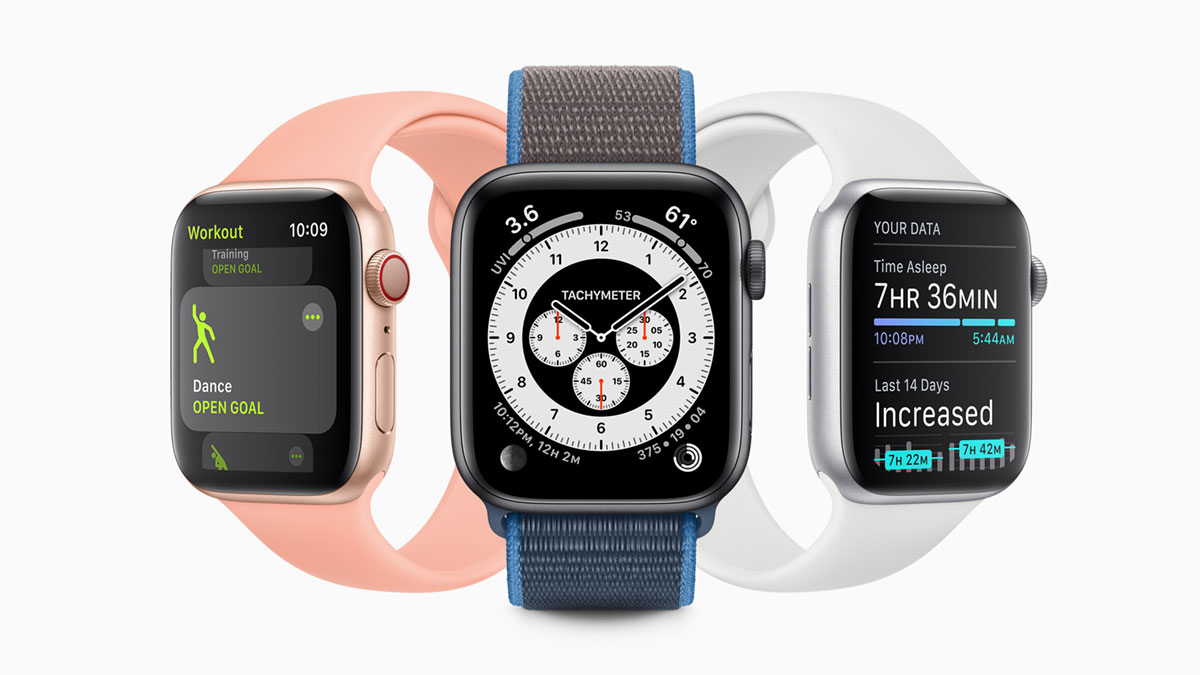Apple announced watchOS 7 this past Monday and while it showed off all the big features were shown off during the event there were still some tidbits that were left for people to find out for themselves. Now that developers have installed the watchOS 7 beta on their own devices, that’s what’s happening. And we’re learning more every day.
One of the features that Apple didn’t announce was the fact Apple Watch will get Battery Health Management support when watchOS 7 arrives later this year.

That mimics similar functionality on the iPhone that allows the device to charge to around 80% and then top it off closer to the time it expects the user to need it. That prevents the device from sitting at 100% capacity for any longer than needed – allowing the watch’s battery to live longer before it degrades and needs to be replaced.
Apple Watch batteries, like all rechargeable batteries, are consumable components which become less effective as they age. This is a measure of battery capacity relative to when it was new. Lower capacity may result in fewer hours of usage between charges.
Apple will also add support for Battery Health data, showing users how their batteries will perform out of a maximum capacity of 100% – the capacity batteries ship with when new. The more the batteries are used, the more they degrade and the lower the health percentage, the more likely they are to need to be replaced.

Finally, Apple is also ading support for Announce Messages with Siri, a feature that allows those with AirPods connected to their watch to have incoming messages read aloud without any action required from the user.
The watchOS 7 beta is currently in the hands of developers with a public beta set to arrive next month. Everyone else should be able to take advantage of the update in or around September.
You may also like to check out:
- Download iOS 14 Beta 1 IPSW Links And Install On iPhone 11, Pro, XS Max, X, XR, 8, 7, Plus, 6s, iPad, iPod [Tutorial]
- iOS 14 Beta 1 Download IPSW Links, OTA Profile And iPadOS 14 Beta 1 For iPhone And iPad
- iOS 14 Beta 1 Profile File Download Without Dev Account, Here’s How
- iOS 14 Hidden Features On iPhone And iPad That You Don’t Know About [List]
- Download: iOS 13.6 Beta 2 IPSW Links, OTA Profile File, Beta 2 Of iPadOS 13.6 Released
- iOS 13.5.1 Downgrade No Longer Possible After Apple Stops Signing iOS 13.5 Jailbreak Firmware
- Jailbreak iOS 13.5.1 Using Checkra1n, Here’s How [Video Tutorial]
- Jailbreak iOS 13.5 On iPhone 11, Pro Max, SE, iPad Pro, More Using Unc0ver 5.0.0 [Tutorial]
- Download: iOS 13.5.1 IPSW Links, OTA Update Released For iPhone And iPad
- Jailbreak iOS 13.5 Without Or No Computer, Here’s How
- Apple Watch ECG App Hack: Enable Outside US In Unsupported Country On Series 5 & 4 Without Jailbreak
You can follow us on Twitter, or Instagram, and even like our Facebook page to keep yourself updated on all the latest from Microsoft, Google, Apple, and the Web.

